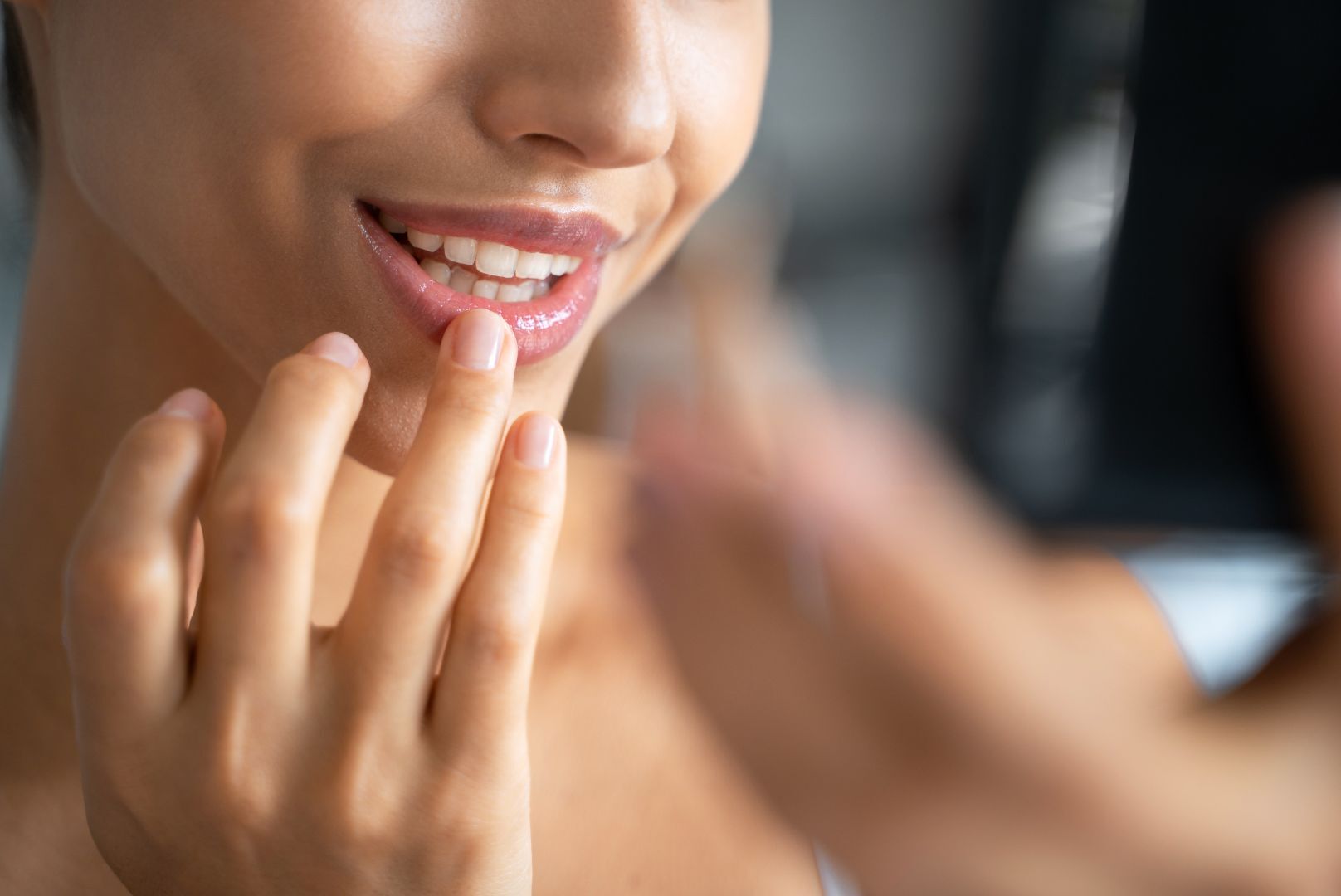

There's no denying that dealing with dry skin anywhere on your face (or body, for that matter) can be seriously uncomfortable, irritating, and, oftentimes, unsightly.
But dry, peeling skin around your mouth and lips can be particularly problematic and annoying. And if you feel like it's cropping up in this area more than anywhere else, that's probably not your imagination. There are several different culprits—biological and environmental—that could be to blame. Ahead, we explain why you may have dry skin around your mouth and share the best strategies for both prevention and treatment.
What Causes Dry Skin Around the Mouth?
- Anatomy: First, it's important to understand that the skin around the mouth differs from the skin elsewhere on your face. Structurally it's the same, but there are fewer oil glands around the lips and mouth than on the nose or central face. This, in turn, makes them innately more prone to dryness and sensitivity.
- Sun exposure: Because the lips are constantly exposed to sunlight, they can easily become more damaged by UV rays: Chronic sun exposure contributes to dry skin.
- Angular cheilitis: Angular cheilitis is a dry skin condition found on the corners of the mouth. It's most common among people with deeper wrinkles around their lips and those prone to licking lip corners; saliva production comes into play, too.
- Your lifestyle: Dry skin around your lips and mouth can also be caused by external factors: namely, your mouthwash and toothpaste. Cinnamon is a common ingredient in both, and can trigger an actual skin allergy or contact dermatitis. (Both can manifest as dryness, redness, itching, and flaking.) Similarly, any fragrance in your lip products can cause and exacerbate dryness.
How Can You Prevent Dry Skin Around the Mouth?
As with most medical conditions, prevention is easier than treatment. For starters, you'll want to limit exposure to potentially drying ingredients. That means ingredients and products such as retinoids, alpha and beta hydroxy acids, and sulfates. Even if these don't cause an issue on the rest of your face, the fact that the skin around the mouth has fewer oil glands and is dryer means you may experience dryness in that one localized area.
We addressed avoiding fragrance in your lip products; it’s suggested to avoid flavors, too. Flavoring tastes good and makes you more likely to lick your lips (whether you're consciously aware of it or not). And when you lick your lips, that saliva evaporates super quickly, which can dry them out. Similarly, try choosing dental products labeled for "sensitive gums," as these also tend to be less irritating and generally better for sensitive and dry skin.
How to Treat Dry Skin Around the Mouth
If you're already dealing with dryness around the mouth, the solution isn't much different than what you'd do to treat dry skin on the rest of your face.
The importance of loading up on hydrating serums and creams cannot be understated. Be on the lookout for formulas with ceramides (to help repair a compromised skin barrier), along with hyaluronic acid and glycerin to attract and trap moisture in the skin. Just make sure any products you're applying around your mouth or on your lips are fragrance-free and contain minimal ingredients to minimize the likelihood that some other ingredient irritates.
In the same vein, using gentle, creamy, sulfate-free cleansers is a good idea, and sleeping with a humidifier to help add ambient moisture to the air is a good move, too.
All that being said, if your dry skin isn't going away—or is accompanied by painful cracking, redness, or peeling—it's worth seeing a dermatologist, as you may need a prescription treatment.
To keep your skin hydrated and nourished around your mouth, make sure you’re using the right skincare products. Shop Wild Naturals for natural, repairing ingredients that can also help keep the skin around your mouth moisturized!


